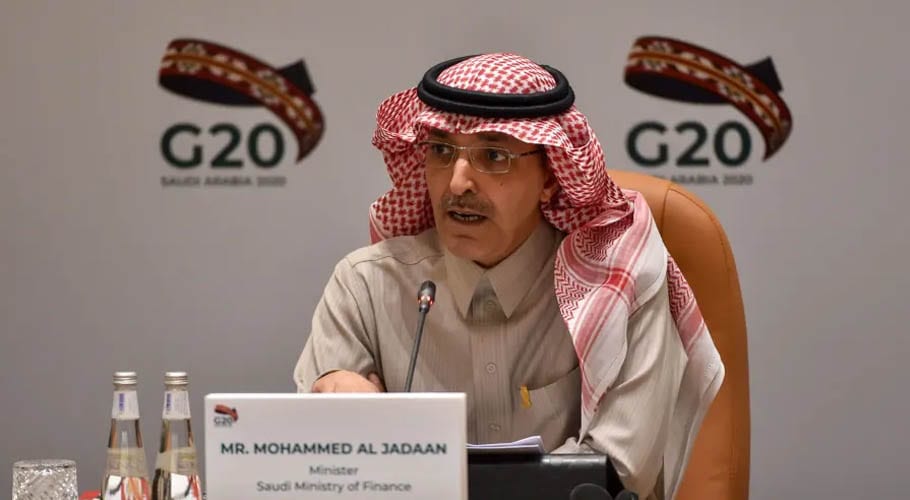JEDDAH: The United States, China and other G20 countries agreed for the first time on a common approach for restructuring government debt as the coronavirus crisis leaves some poorer nations at risk of default.
The agreement came as Zambia said it would not pay an overdue Eurobond coupon by Friday’s deadline, putting it on track to become Africa’s first pandemic-era sovereign default.
G20 finance officials agreed more help was needed than a current freeze in official debt payments that runs out at the end of June. They cited the scale of the COVID-19 pandemic and “the significant debt vulnerabilities and deteriorating outlook in many low-income countries.”
Major creditors, including China, will be expected to follow the joint guidelines agreed by the G20, which lays out how debt deemed to be unsustainable can be reduced or rescheduled.
International Monetary Fund Managing (IMF) Director Kristalina Georgieva called the framework a historic achievement and said it should increase private sector participation and speed up resolution in cases where debts were unsustainable.
“Let’s be very frank here. We are not out of the woods. This crisis is not over. We need further support through debt relief and through fresh financing,” she told G20 officials. African states alone face a financing gap of $345 billion through 2023, she has warned.
Non-governmental groups said the accord should have gone further by including middle-income countries and forcing private investors to accept cancellations. China, which accounted for 63 percent of overall debt owed to G20 countries in 2019, has been reluctant to acknowledge the need for outright cancellation or reduction of debts.
Estimates of total Chinese lending – which surged in the past 20 years – range from $350 billion to over $1 trillion, the U.S. official told reporters after Friday’s G20 meeting. Under the new framework, creditor countries will negotiate together with a debtor country, which will be expected to seek the same treatment terms from private sector creditors.
The scheme borrows heavily from rules established by the Paris Club group of mostly wealthy nations established in 1956, which until now was the only joint forum for negotiating debt restructurings.
The new framework aims “to facilitate timely and orderly debt treatment” for countries eligible for the debt payment freeze put in place in April, but which only included private sector creditors on a voluntary basis, the G20 statement said.
The new framework requires all public creditors to participate, after China was criticised by some G20 partners earlier for not including debt owed to its state-owned banks. Beijing has defined the state-owned China Development Bank as a private institution, resisting calls for full participation in debt relief.
The Paris Club, which is organised by the French Finance Ministry, and G20 countries had already agreed last month to extend this year’s debt freeze under which they deferred $5 billion in debt servicing to help the world’s poorest countries. G20 leaders are expected to endorse the common framework at a virtual summit meeting next week.



































